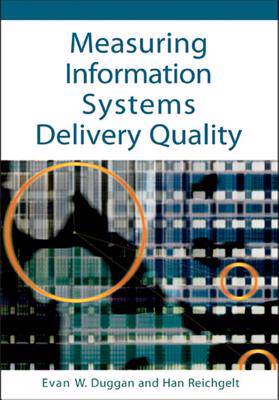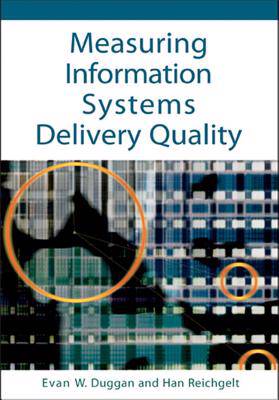
- Afhalen na 1 uur in een winkel met voorraad
- Gratis thuislevering in België vanaf € 30
- Ruim aanbod met 7 miljoen producten
- Afhalen na 1 uur in een winkel met voorraad
- Gratis thuislevering in België vanaf € 30
- Ruim aanbod met 7 miljoen producten
Zoeken
Measuring Information Systems Delivery Quality
Hardcover | Engels
€ 152,95
+ 305 punten
Omschrijving
Currently, there is neither a commonly-accepted definition of information systems (IS) quality nor a convergence of perspectives on quality approaches. The IS community has focused on the various contributions of people, delivery processes, development philosophies and methods. Measuring Information Systems Delivery Quality represents a spotlight on IS quality that represents the efforts of authors from several countries across the globe. Despite this diversity, this book reflects the common position that improving objective knowledge of potentially quality-enhancing methods is far more likely to assist the production of high-quality software than experimentation with each new gadget. Measuring Information Systems Delivery Quality provides thoughtful analysis and explains some of the contradictions and apparent paradoxes of the many IS quality perspectives. It offers prescriptions, grounded in research findings, syntheses of relevant, up-to-date literature, and leading IS quality practices to assist the assimilation, measurement, and management of IS quality in order to increase the odds of producing higher quality systems.
Specificaties
Betrokkenen
- Uitgeverij:
Inhoud
- Aantal bladzijden:
- 384
- Taal:
- Engels
Eigenschappen
- Productcode (EAN):
- 9781591408574
- Verschijningsdatum:
- 31/03/2006
- Uitvoering:
- Hardcover
- Formaat:
- Ongenaaid / garenloos gebonden
- Afmetingen:
- 183 mm x 262 mm
- Gewicht:
- 893 g

Alleen bij Standaard Boekhandel
+ 305 punten op je klantenkaart van Standaard Boekhandel
Beoordelingen
We publiceren alleen reviews die voldoen aan de voorwaarden voor reviews. Bekijk onze voorwaarden voor reviews.










